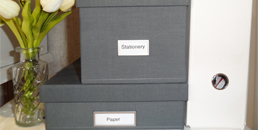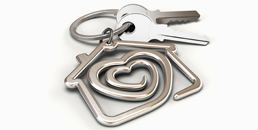by Natalie Morey | Oct 27, 2022 | Declutter tips, Pantry Declutter, Pantry organization, Tips
Having an organised pantry is essential. It’s a space you use numerous times a day so it needs to be setup right. You need to have different zones for your food, the right containers and a layout that works for the space So, here’s our top tips on how to organise your pantry.
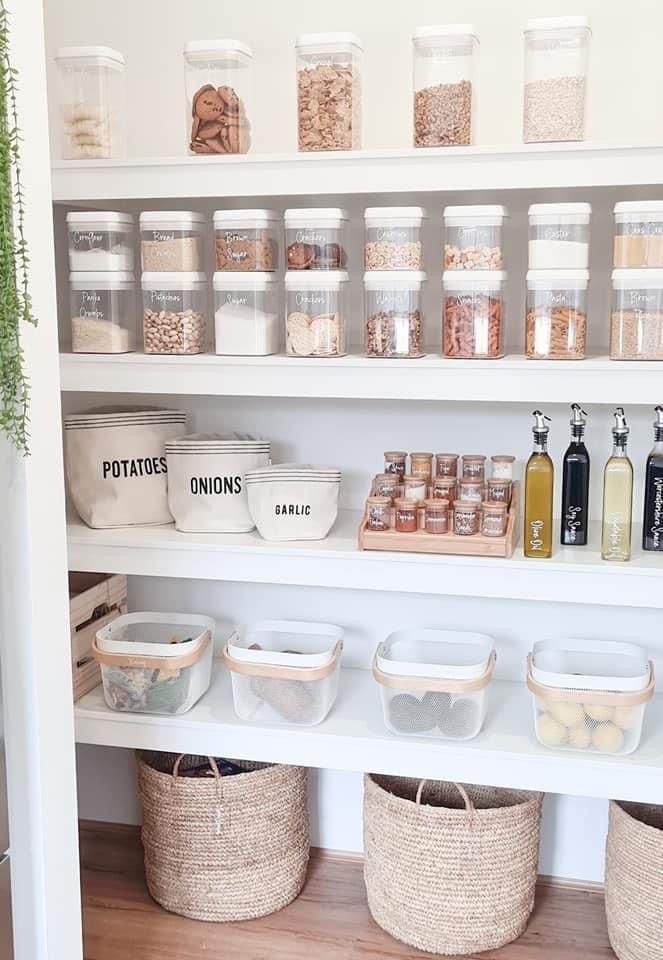
Pantry organisation
Take everything out.
Remove all the items from your pantry, one shelve at a time.
Discard any out-of-date food.
Don’t forgot to start a list of items you need to replace.
Clean your pantry.
Using hot soapy water, wipe out each shelve.
Group like items together.
Put all your cereals together, your baking items together etc.
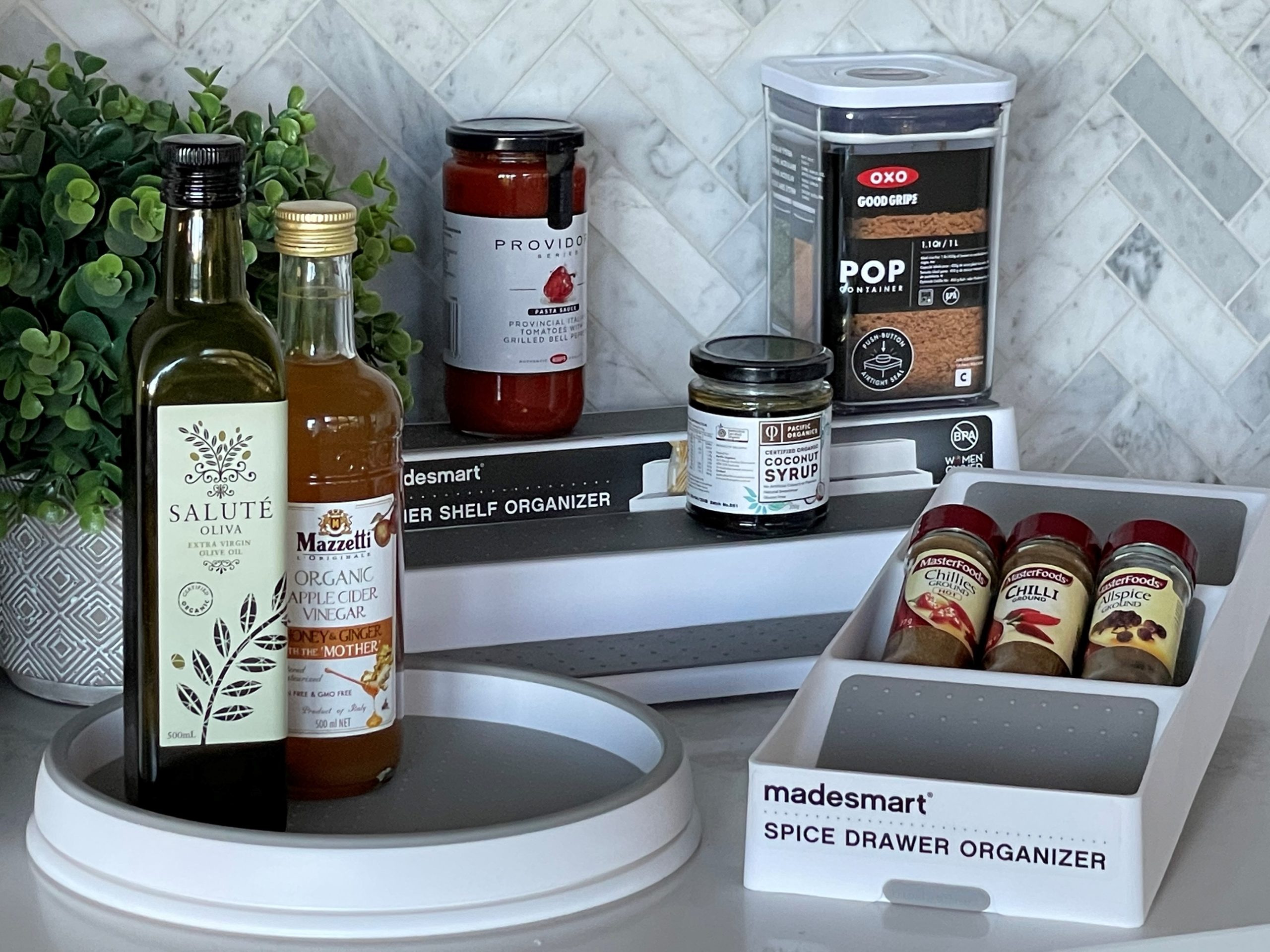
Pantry Storage
Choose your containers.
It’s a great time to replace any old containers or streamline your panty look and buy all matching containers. Clear containers are always best in the pantry. You just need to decide if you want plastic or glass ones. Don’t forget to wash out your new food containers before you decanter food into them.
When choosing the right type of container for your space, think about how they will stack together. Do you want square or round containers? You might find that square containers stack better and therefore make the best use of your space. Just make sure the lids seal really well too.
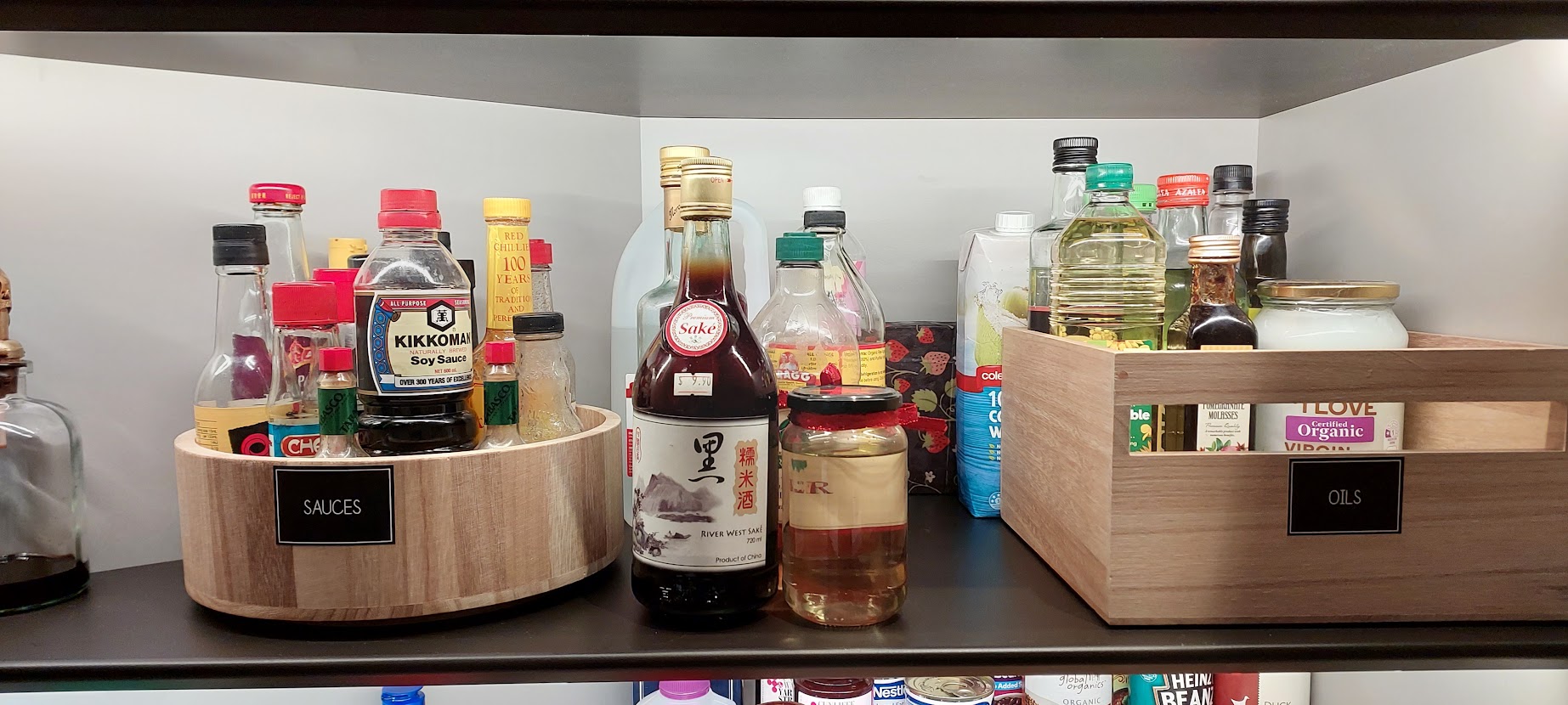
Pantry Storage
Setting up your pantry in zones.
When putting everything back into your pantry, think about the different areas and what you use the most. Items that you use all the time, like breakfast cereal should be easily accessible at the front.
Label, label and label.
Don’t forget to label the food containers too. You can also label the shelves so everyone knows what items belong on what shelves. We often use custom made labels for our client’s pantries. You can choose the colour, font and shape. The look great and the labels last longer too.
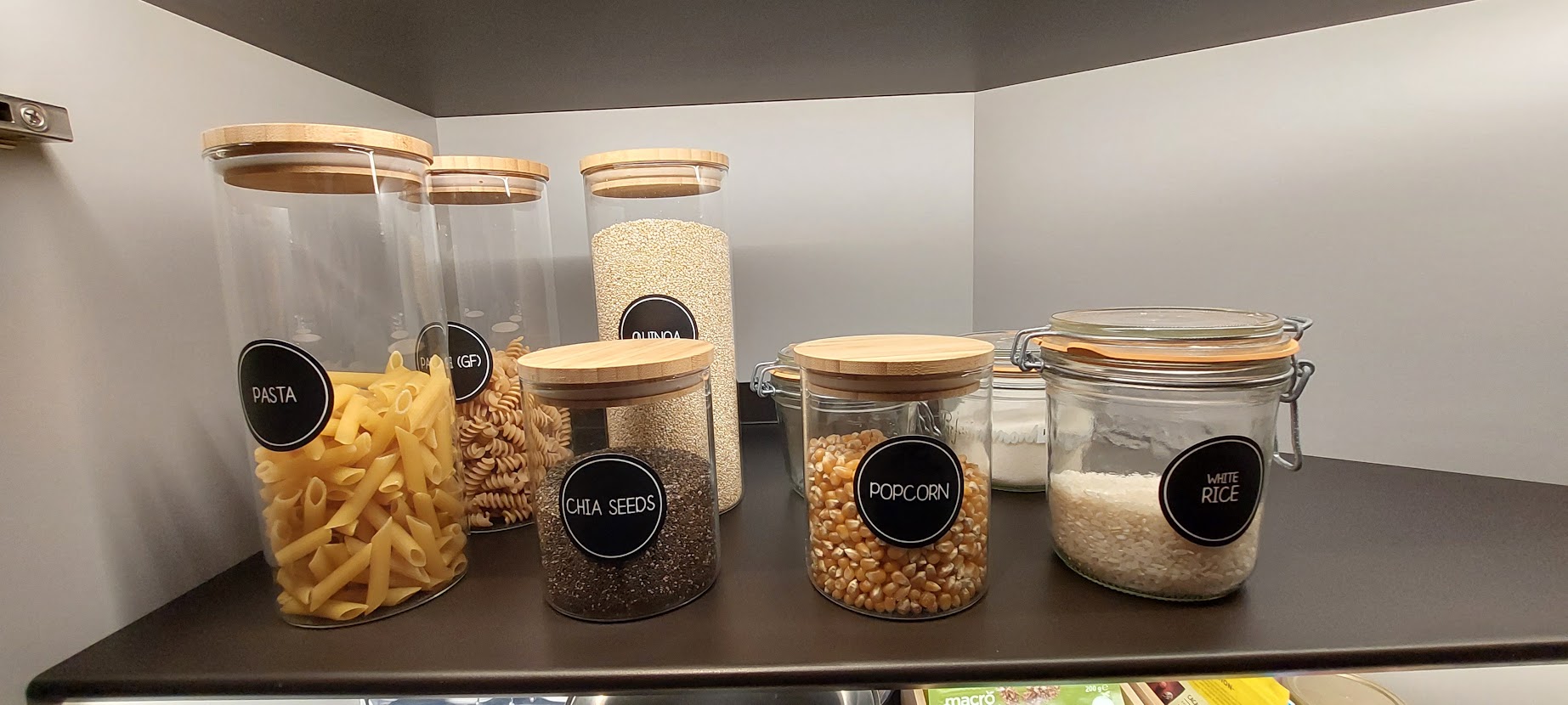
Pantry Labels
Use baskets and tubs.
Baskets or pull out tubs are really useful to store bulky items in. Canned food can be stacked on tiered shelving, soup/packet mixes can be stored in pull-out baskets and spices in a spice rack.
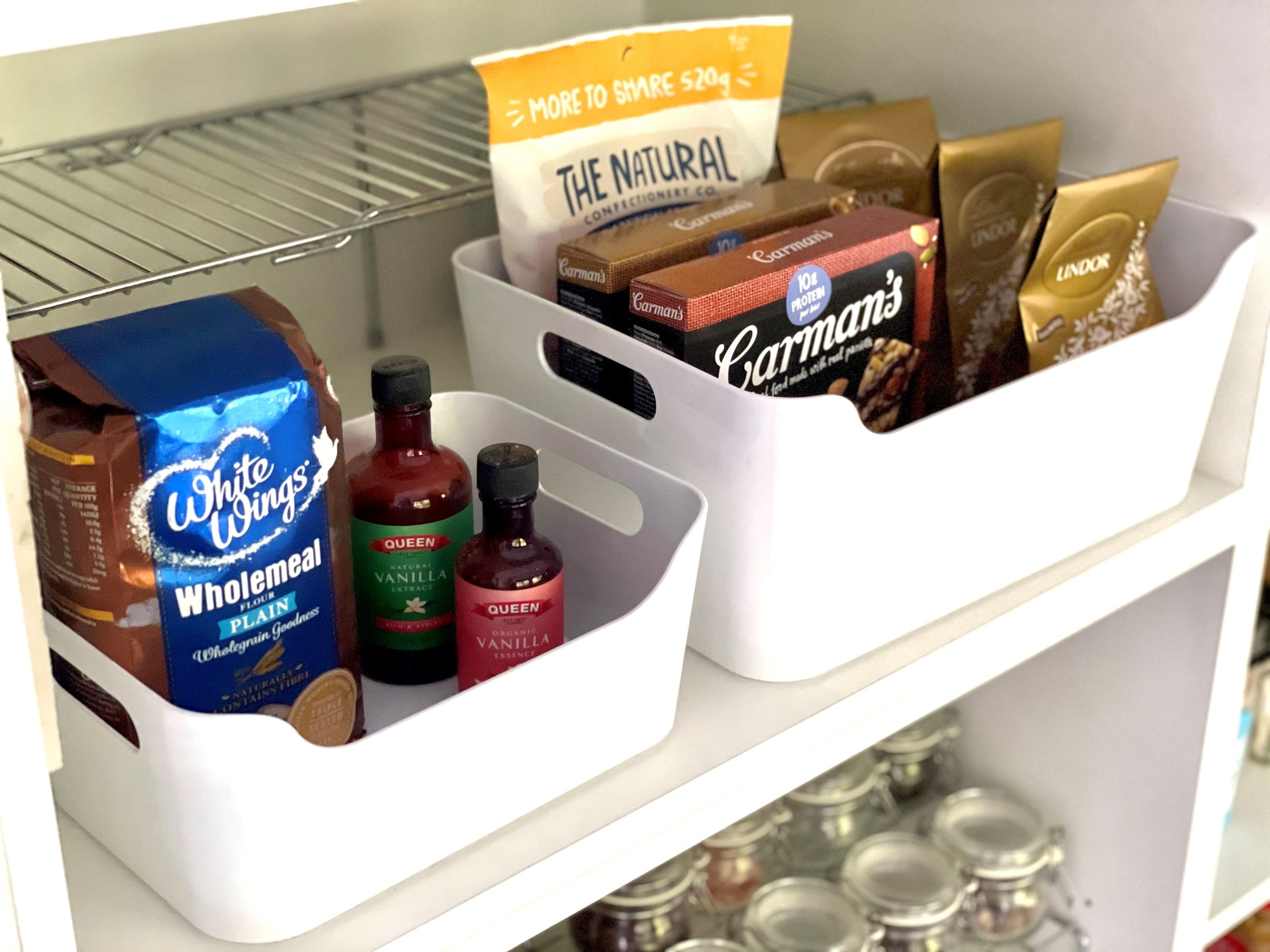
Create extra storage space.
We regulary get asked how to organise your pantry. As part of the organising process you should also look at how you can create more space as well. Can you create more storage zones by installing racks on the back of your door to store gladwrap, tin foil or paper towel on? For items that you don’t use regularly, think about storing them in tubs or containers either down the bottom or up the top of your pantry.
Once your pantry is neat and organised you will find that you waste less food too. You will be able to see what you have in your pantry because nothing is hidden in the back of your pantry. Plus, you won’t be knocking over the soy sauce bottle to reach your breakfast cereal because everything will be accessible.
Want to get your pantry organised? Then contact us. We love pantry’s.
by Natalie Morey | Oct 11, 2022 | Declutter tips, Home Staging, Pre Sale Declutter, Pre Sale Styling
Our expert tips on styling your house for sale will help you declutter and get organised for your sale campaign.
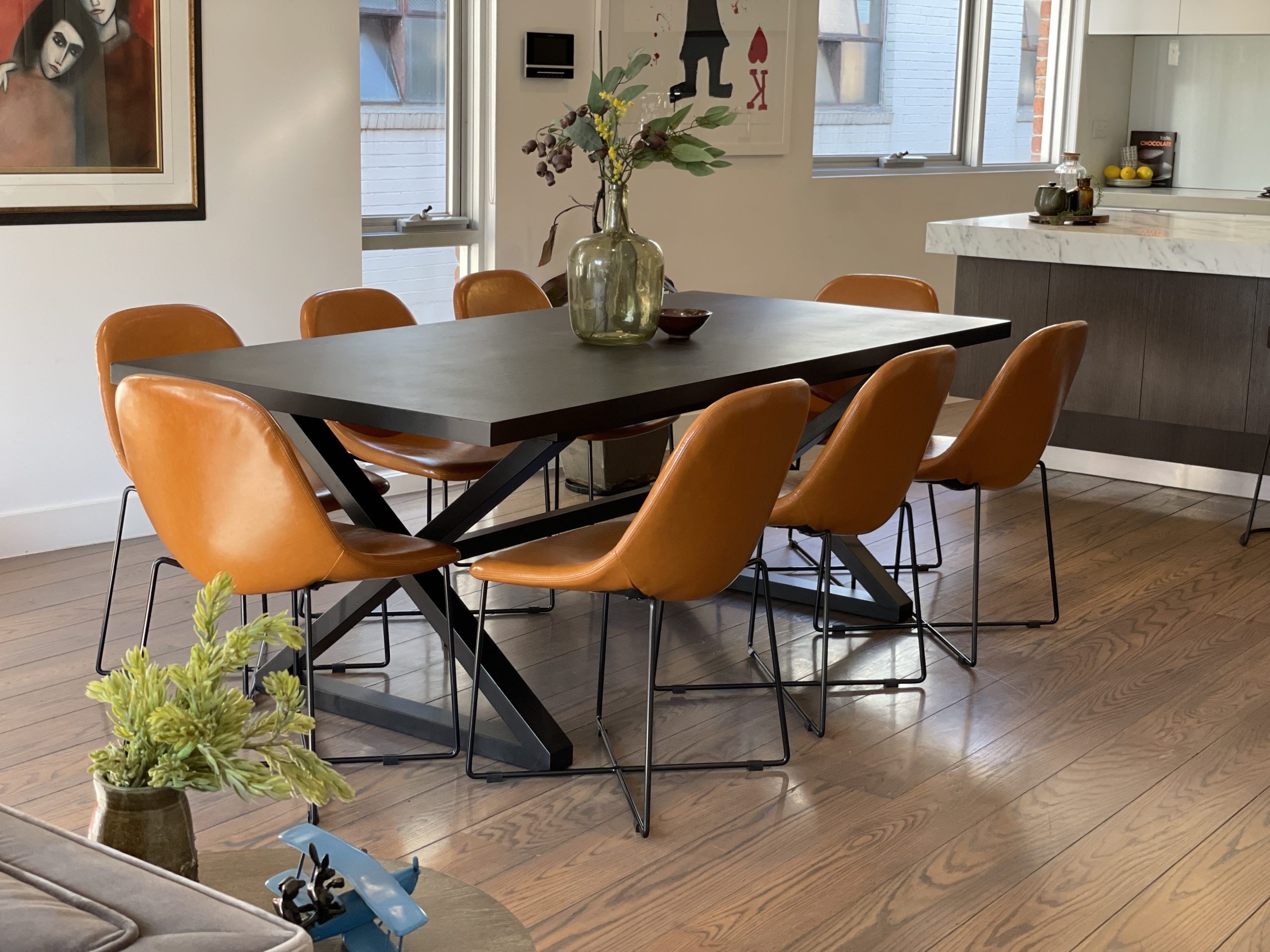
Expert tips on styling your house for sale
Pre sale declutter tips
- A bit of packing now creates a big return later. By packing up some of your personal belongings it will help to create more space and showcase the best attributes of your house.
- Getting personal. If you have got too many personal items on display in your home it can clutter up the space and distract potential buyers?
- Allow enough time. Decluttering takes time. Depending on how much needs to be decluttered, you might need to start the process a couple of months in advance. Or call in an expert to help you.
- Start your piles. Organise your items into groups to: Keep, Cull and Donate.
- Don’t just pack, cull first. When you start the declutter process decide if the item really needs to come to your new house. Ask yourself “Is it something that you use regularly”. Are you moving boxes that still have not been unpacked from your last house move? (We see this ALL THE TIME). By doing your decluttering now, not only does your house look great for the sale campaign, but there will be less packing to do on moving day.
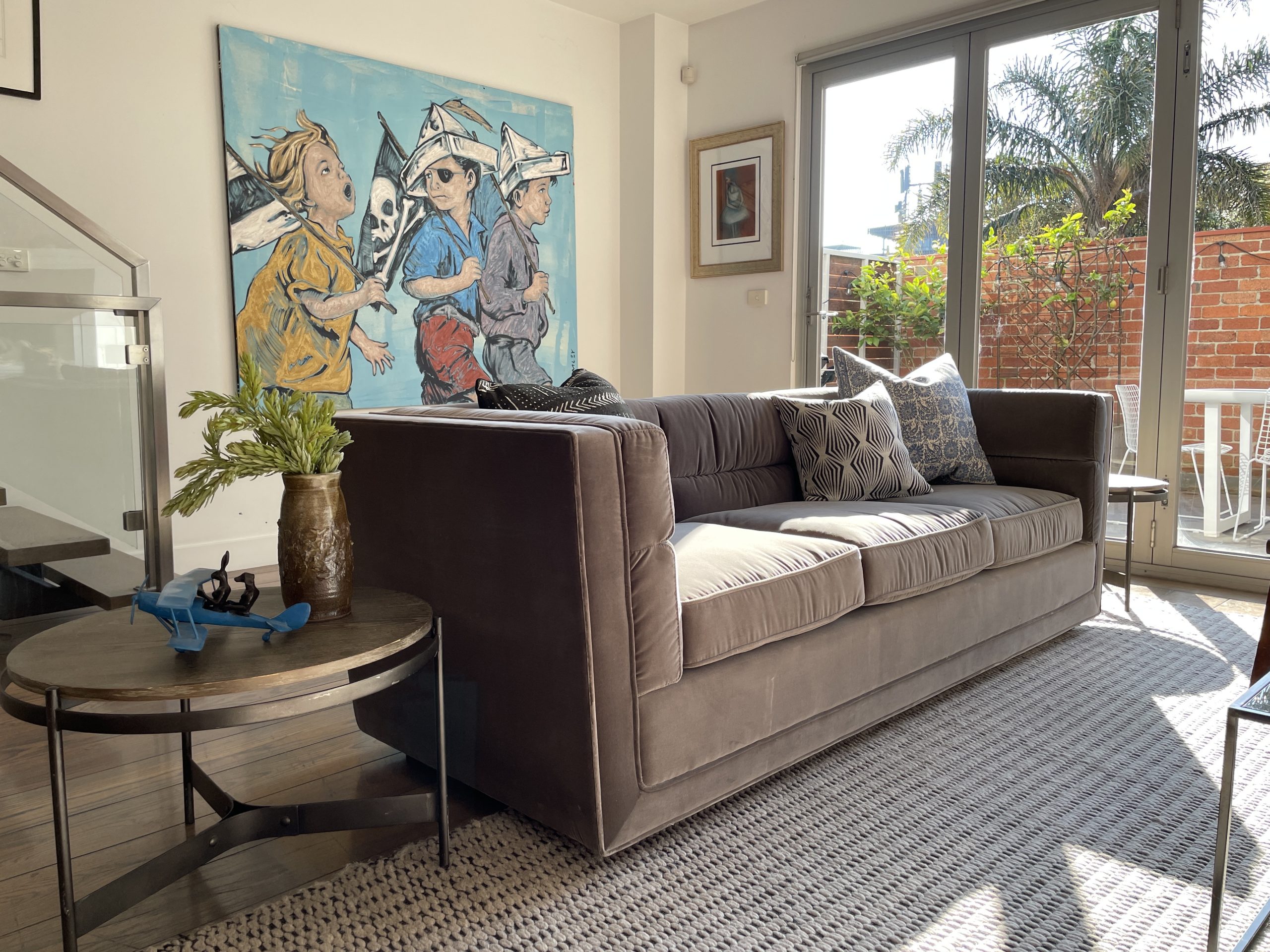
Pre sale styling and decluttering tips
Is your room layout right?
- Fit for purpose. Are you using the spare bedroom as a study? Is the bedroom being used as a TV room? Sometimes you need to change around how rooms are used to help ensure maximum value on sale day.
- Fit to scale. Have you got items that are too large for your space which then makes the room dimensions look smaller? Sometimes you might need to “downsize” a certain piece of furniture like a big chunky sofa and replace it with a smaller one to help create a sense of space.
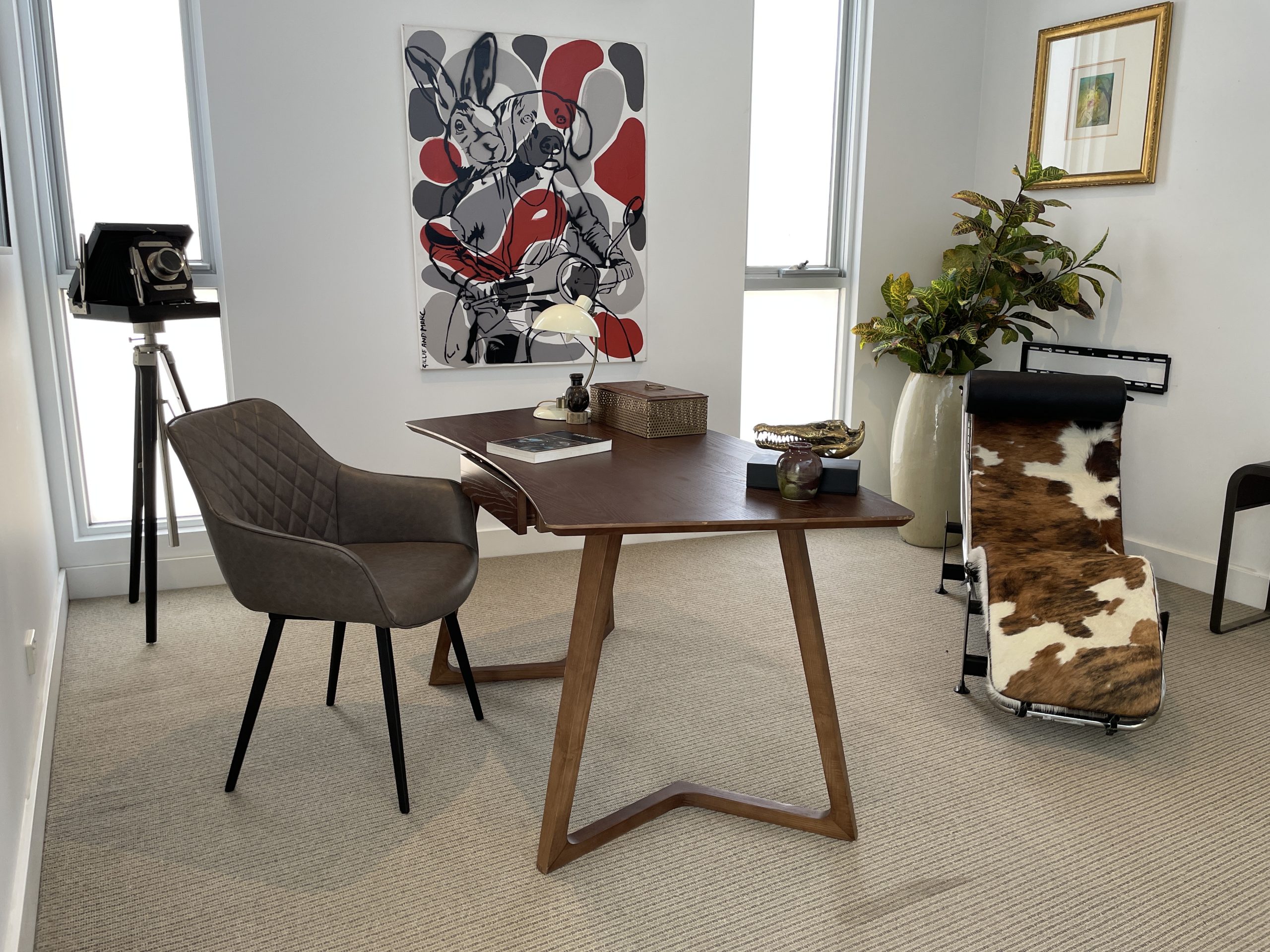
Home staging and expert tips on styling your house for sale
Tips on the right storage solutions?
- Don’t forgot inside your cupboards. It’s a dead giveaway that there might be a storage issue if perspective buyers open up your wardrobe or cupboards and find stuff shoved in there.
- Invest in stylish storage options in your cupboards. They will look great and keep things organised. Plus, they will be quicker to pack.
- Repurpose, reuse and reorganise. What furniture and items can be used in other areas of the home. It’s amazing what a fresh set of eyes can come up with.
- Clear off surfaces, particularly kitchen benches as this will automatically create more space and less clutter.
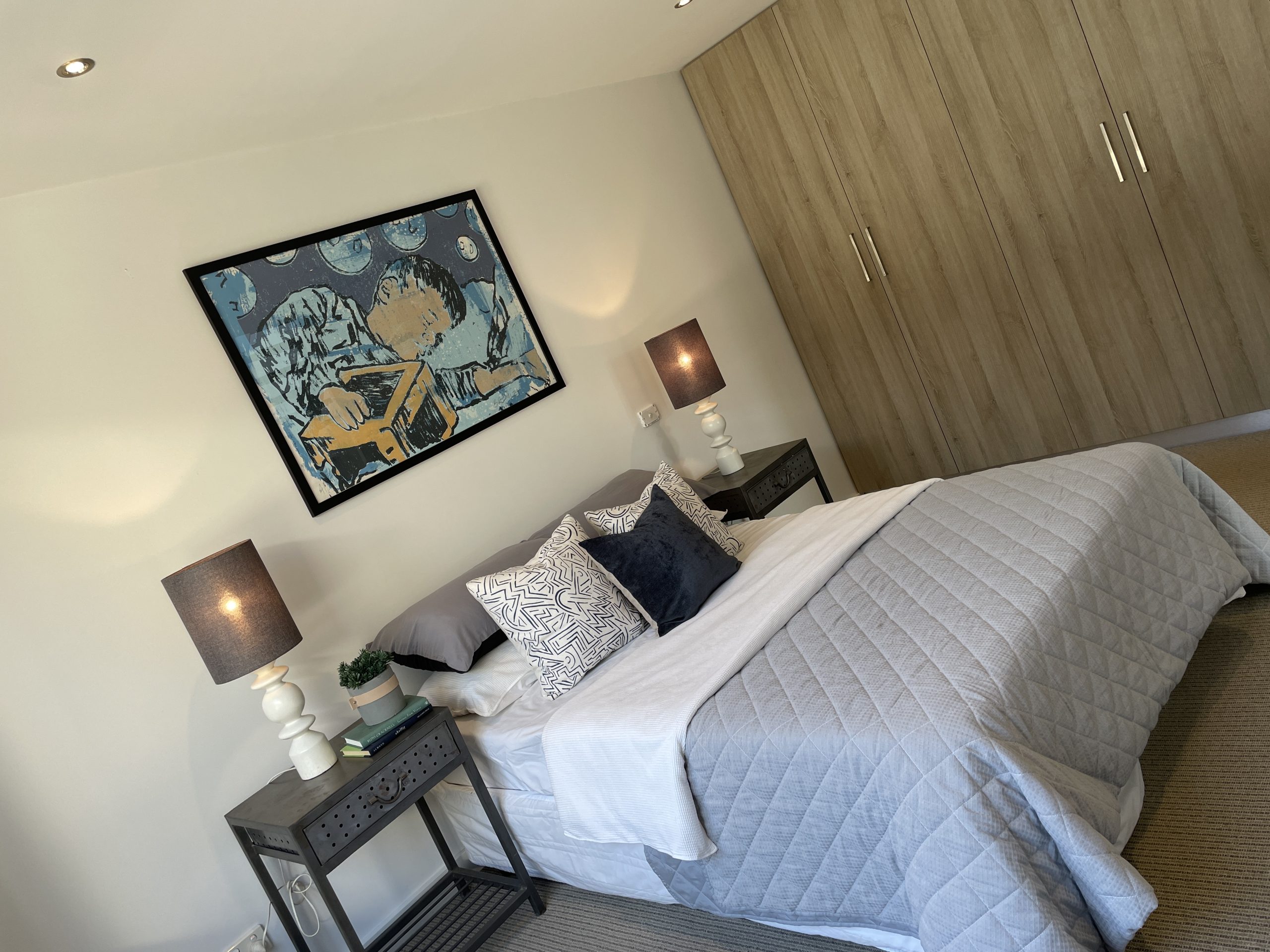
Property styling
Book some help
- Book a cleaning service just before photos are done. You might also consider booking a more regular cleaning service whilst the sales campaign is on too.
- Organise a garden clean up just before photos are scheduled. And if you are selling in spring consider booking a fortnightly gardening service. Don’t forget to book them early too as spring is a busy time of year.
- Take the emotion out of decluttering and styling your home for sale. Preparing to sell your home is hard work. It might be worthwhile to get some professional advise. Because an expert can guide you on the best furniture layout and styling tips to help maximise your space. It’s amazing how a room can totally transform with a fresh set of eyes.
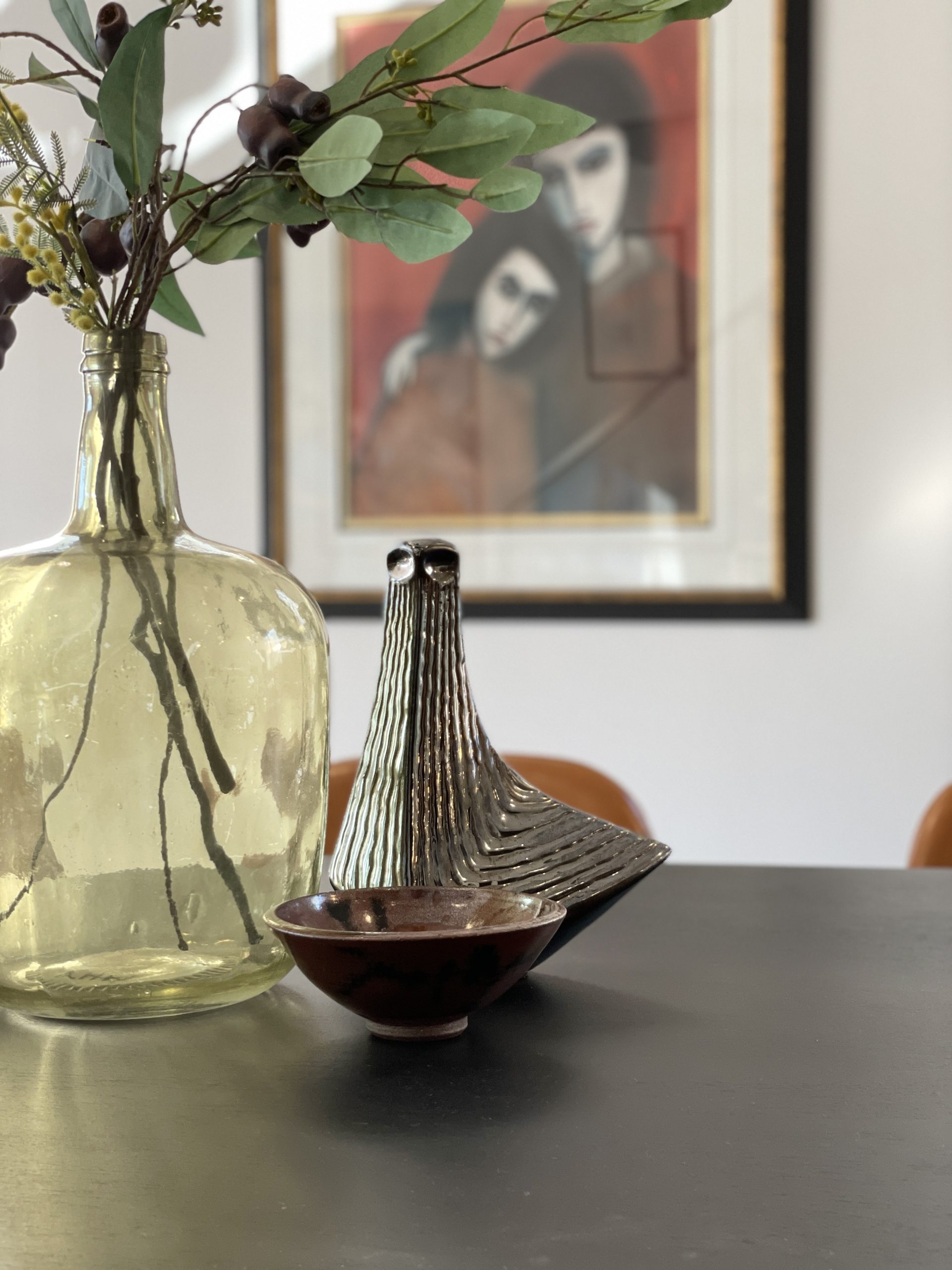
Pre sale styling and organising
Expert tips on styling your house for sale
- Always leave a tidy house. Get into a habit of always leaving the house neat and tidy during the sales campaign. You never know when you will get a call from your agent asking if they can do a private inspection. Avoid that last minute rush of running around trying to get your home ready for an impromptu open for inspection.
- Resist cooking salmon or a strong curry during the sales campaign. The last thing you want is food smells wafting through your house.
- Light up. Have a couple of beautiful candles burning at your open for inspections.
- Wash your floors last. When I sold my house, I ran around frantically vacuuming and washing the floors before each open for inspection. But then, I realised I could just vacuum and sweep prior, then wash the floor once the inspection was done. (I hated the thought knowing that lots of strangers had been walking around my house with their shoes on), so I only had to do it once.
We hope that our expert tips on styling your house for sale will help you get inspired. But, if you are still needing some extra help, then contact us. We can organise your pantry and wardrobes and create a clutter free space. We can also suggest key furniture pieces that will help elevate your home styling to the next level.
by Natalie Morey | Jul 27, 2021 | Declutter tips, Home Office, Home Organisation, Office Organising, Tips
I use these 10 tips for coping during lockdown every single day. They work and help me keep on track of what is a crazy time at the moment.
Make friends with your slow cooker
I’m a bit of a slow cooker connoisseur. I prep my veggies, and get them all cut up and meat ready the night before. Then, in the morning all I need to do is pop them in the slow cooker. After a challenging day of home schooling and wrangling kids and trying to juggle work (and stay sane) I don’t have to think about dinner as it’s done.
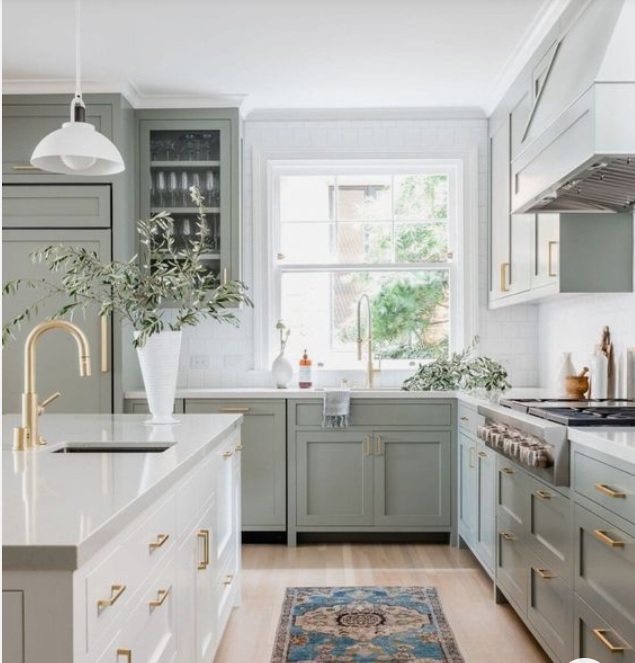
10 Tips For Coping During Lockdown – Image Ref: ablissfulnest.com
Batch cooking
If you’re making Spaghetti Bolognese, make a double quantity and freeze the other batch. This week we are having Pumpkin Ravioli, Spaghetti Bolognese and Shepard’s Pie, all out of the freezer. Then all you need to do is cook some veggies or makem a quick salad and dinner is done.
10 minutes a day keeps the pile away
Ironing is probably the last thing on your mind at the moment but if you do 10 minutes a day it will keep it in check.
I miss my cleaner
Obviously, my cleaner cannot come at the moment and the last thing I have time to do is clean. So, I just do 5 minutes here and there. As soon as I have showered, I wipe out the shower. It’s amazing the difference this makes and your shower won’t need a proper clean for weeks. A quick wipe over the bathroom mirror and vanity after the kids have cleaned their teeth means another job done. Five minutes here and there makes a big difference. Although one of the benefits of lockdown is that no one will be coming to visit you anyway, so maybe cleaning doesn’t need to be high on your list either!!!
Take 10 minutes for yourself
Before the craziness of the day starts I make a cup of tea and go and sit quietly (away from the kids) and take the time to drink it in peace (and whilst it’s hot). Its amazing how you feel if you can just get 10 minutes here and there to yourself.
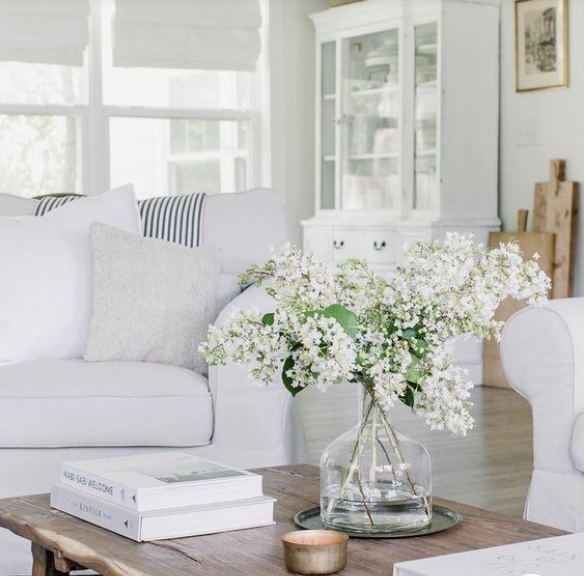
10 Tips For Coping During Lockdown – Image Ref: followtheyellowbrickhome.com
Book that appointment
We won’t be in lockdown for ever (even though it does feel like that some days). So, book that facial or massage now so that when lockdown is finished you have already secured your spot.
Plan out your week
Map out those important meeting that you cannot miss and plan your day around them. Let the family know too. If you need to get the kids set up with Google Meets first thing in the morning, then schedule any “must do” meetings in the afternoon.
Recharge at night
Be sure to recharge all your device e.g., iPads at night ready for the next day of learning.
Bribe your kids
Normally not one that I would suggest but do whatever it takes to get it all done. If you have little kids perhaps start a reward chart for them. They get stickers (and eventually a reward) for doing good things like not coming into the office when you’re on a Zoom meeting, or completing their school work for the day.
The last of my 10 Tips For Coping During Lockdown – Up your vitamins and greens
Let’s be honest, we are all probably burning the candle at both ends. So now is the time to up your dose of Vitamins so you can cope. I know I finished work at 11pm last night so I definitely need some extra energy today.
Good luck with lockdown 5.0. Hopefully it won’t be long and we will be back out again.
Want more tips on coping during lockdown? Then check out our blog on: Master Working From Home.
Whilst we cannot go and do any home organising we are still helping our clients virtually. So if you need some help, we are only a phone call away.
by Natalie Morey | Jul 20, 2021 | Declutter tips, Home Office, Home Organisation, Office Organising
Organising your paperwork for tax time can be a time-consuming and stressful at the best of times. But it’s a hundred times worse when your tax documents and receipts are scattered all over the place and in no logical order. So we have put together some tax time tips to help get you organised.
If you are still using the old shoe box storage system or if you have got receipts shoved in your wallet or worse still you have got no idea where they are, then it’s time to review your home office filing system.
Having a well-organised tax record filing system is the key to making the process a whole lot simpler, quicker and hassle-free.
Here’s our 8 tips to help get you organised.
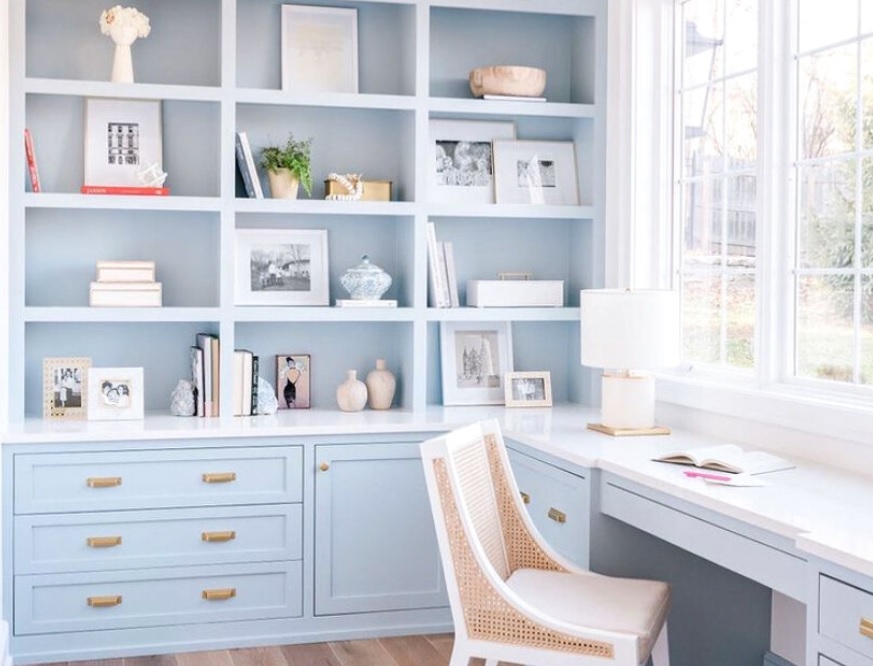
Organising Your Paperwork for Tax Time. Image reference: www.kateknowleshome
1. Set up a filing system
Systems don’t need to be expensive or complicated. A 2-ring binder folder, simple colour-coded manila folders or a concertina file will work if you don’t have a filing cabinet.
2. Understand what you can claim
It’s a good idea to talk to a tax professional and get an idea of what expenses you can claim. This is especially important now if you’re working arrangements have changed (and let’s be honest, nearly all of us have had changed working arrangements in the last 12 months).
Have you purchased equipment so you can work from home – a laptop, desk items, stationery etc.? Find out what you can claim and ensure you have the receipts to prove it.
For more detailed information on what you may be able to claim, check with the ATO.
3. Organising for Tax Time – Decide on your categories
Possible income and expense categories might include:
Income
- PAYG Payment Summaries from your employers
- Interest earned on all bank accounts
- Dividends received on any shares you own
- Distributions paid from Trusts or Partnerships
- Rental income on your rental properties
Expenses
- Working from home expenses.
- Work car related expenses
- Work travel related expenses
- Other work related expenses, such as printing, subscriptions, stationery. Do note that they must relate specifically to your employment.
- Donations
- Education/professional development expenses
- Cost of managing your tax affairs, ie your accountant’s fee for preparing your tax return
4. Collect all the paperwork scattered around the house
You know the ones that have been put in your car, shoved in your wallet, your jacket pocket, in your bedside table or some other random spot.
5. Just do it – Once
Papers don’t file themselves. Set time aside to do this. The best option is to file an item away as soon as you receive it. If you cannot do that, set aside a few minutes each week or month to do this. Perhaps make the last day of each month the day when you will do this. Then, you will avoid a big pile of paperwork and emails to file at the end of tax time.
6. Go Digital – Tax Time Tip
Don’t want papers and files sitting around. Then perhaps its time to go digital. Create folders on your computer and in your inbox so you can file electronic receipts, invoices, bank statements and other digital tax-related documents in the appropriate folders as soon as you receive them.
There are some great apps and online programs like Xero or Myob if you need something more specialised.
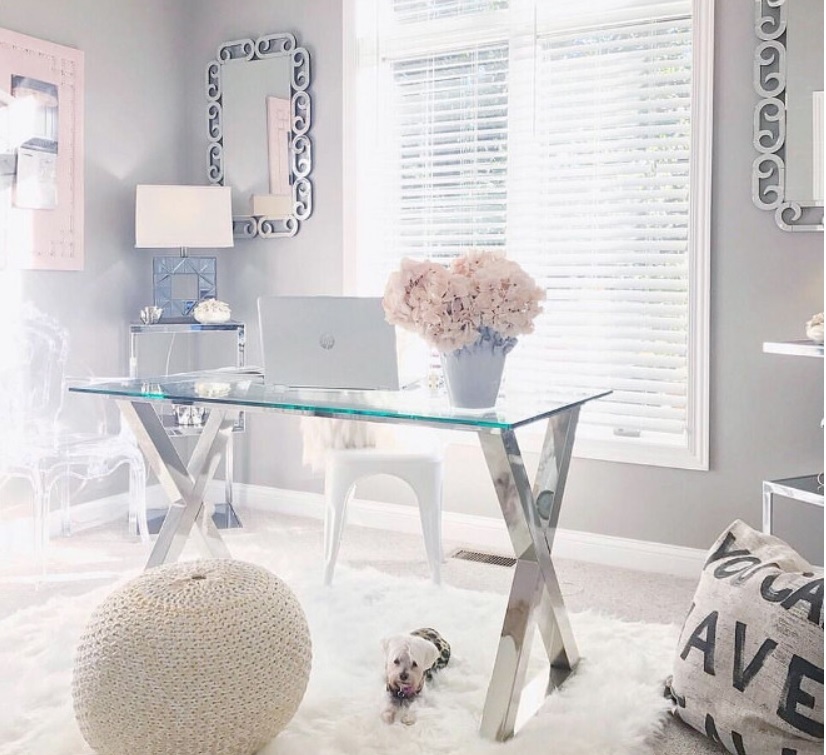
Organising Your Paperwork for Tax Time: image source: homebunch.com
7. The problem with paper
Apart from the clutter that it causes, the other issues with paper records is that once they’re gone, they’re gone. Paper receipts fade and accidents happen. The best way to store receipts these days is electronically. Take a photo and keep it on your phone or laptop or get an app to keep all your receipts in the cloud. Just make sure you set up an online filing and file it logically, so you can find it.
8. Book that appointment
Now that your organising for Tax Time is done and all your paperwork is organised logically in one spot, it won’t take long to pull it all together. So book that appointment with your accountant and get your tax done. And hopefully, now that you have all your receipts together, you might get a nice refund too.
Running A Business From Home
Running a business from home and need some extra support, setting up XERO or Myob, imputing data or lodging your BAS statements. We work with a great company who can manage all your accounting requirements. Just contact us for more information about them.
Need some help organising your paperwork for tax time? Then contact us. We love organising paperwork and home offices.
by Natalie Morey | Mar 27, 2020 | Declutter tips, Home Office, Home Organisation, Office Organising, Virtual PA
Master working from home with these tips.
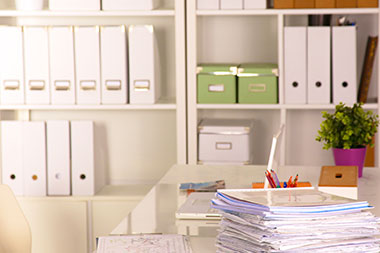
Home office
Declutter your Space
There is nothing more distracting than having a heap of stuff laying around. Whether that’s in the spare room, on the kitchen table or on your desk. A cluttered space creates a cluttered mind. So now is the time to clear out the stuff you haven’t used for a while.
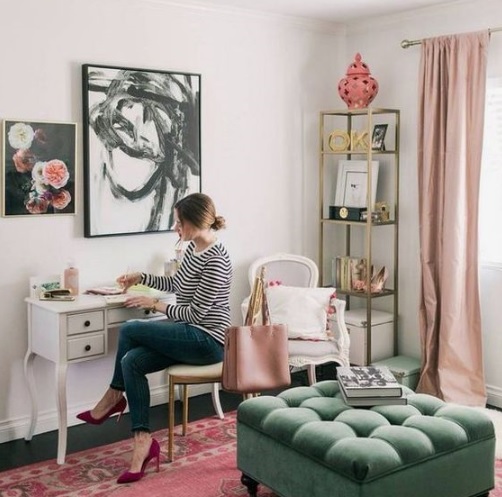
Home Office Ideas
No PJ’s
No, its not okay to crawl out of bed and still in your PJs start work. Get dressed, get organised, do your hair (and makeup if you normally wear it), ready for your day “in the office”.
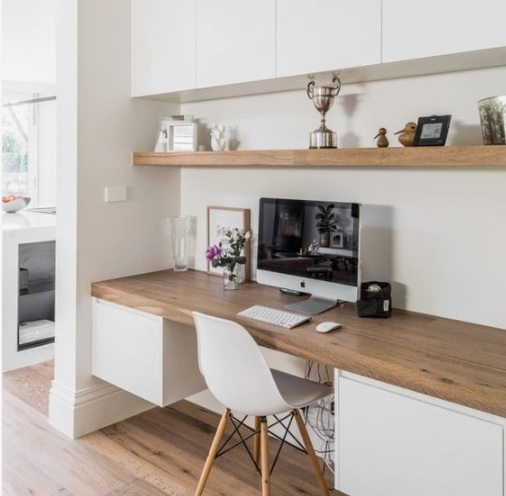
Home Office Ideas
Set Some Boundaries
This is super important especially if other family members are also at home. Set boundaries with anyone else who shares the home, so they respect your work time. So that might mean if you are working in a spare room, when the door is closed, that indicates you are at work and you should not be interrupted. Or, if you are working at the kitchen table, family members understand that they should not be interrupting you. Easier said than done if you have kids at home too, so you just need to start the conversation.
Image credit: Williams Cabinets
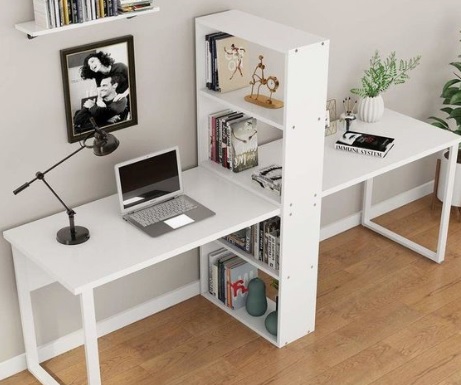
Working From Home
Check your Internet Package
You cannot function without it. You may need to upgrade your plan to ensure you have enough data, especially if other family members are also online.
Image credit: Hayfair.com
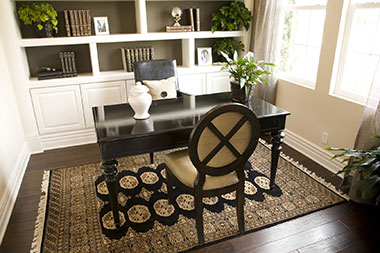
Organised home office
Business as Usual
Keep the same schedule you had at the office. So that means getting up at the same time and starting the working day with the same tasks you would have done at the office.
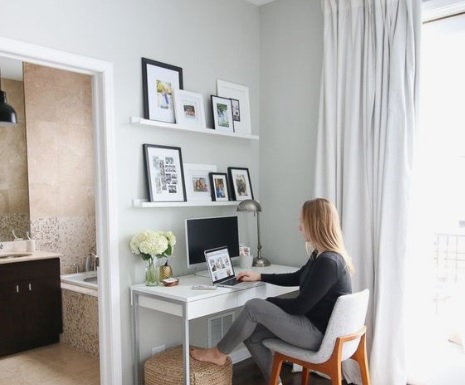
Small home office idea
Stay Connected
For some, working from home is great. No distractions, no annoying co-workers and office gossip. But after a while you may start to feel a bit isolated. So, to help stay connected, make calls on FaceTime, Skype or Zoom instead. That’s another good reason to make sure you are dressed, hair and makeup done!
Image credit: The DIY PlayBook
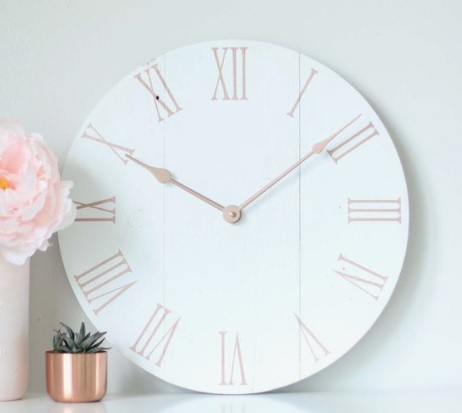
Home Office Decor
Take a Break
Just like if you were in the office, schedule breaks throughout the day, especially if you are sitting in front of a screen. However, be careful not to get caught up doing “household chores”. All of a sudden that load of washing that you went to put on gets you side-tracked from your actual work and you have lost half an hour.
Enjoy your new work space!
The Lifestylers Group provide decluttering and home organising assistance. We also offer virtual PA services to help people get organised and stay organised.
by Natalie Morey | Mar 23, 2018 | Declutter tips, Estate Clearing, Tips
Clearing out and decluttering an estate can be a costly exercise especially if the process is not well organised and planned out in advance.
Here’s 8 of our key tips to help you manage clearing out and decluttering an estate in a cost effective way.
Locate the key financial documents first
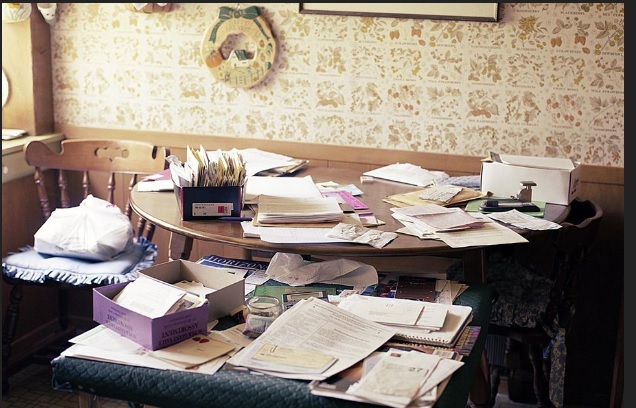
Estate Clearing
The aim is to make your solicitor’s job easier and ensure you don’t have to replace missing documents. You may need to find the latest Will, recent bank statements, life insurance policy, Certificate of Title//property deeds, share certificates, tax returns etc.– all the documents that a solicitor will need to complete the estate administration.
Keep in mind that it’s expensive to replace documents. Currently the fee for replacing a lost Certificate of Title is $189.10, plus an “indemnity contribution” (similar to insurance). This is based on the value of the land and the circumstances under which the paper Certificate of Title was lost or destroyed. Costs could range from $100 to $600, so it’s worth finding these documents as soon as possible, before the declutter and cull starts. Plus, there could be additional legal costs associated with the replacement process.
Keep an eye out for hidden cash
Money hidden inside old shoe boxes or jars still exists. I cannot begin to tell you how much cash we have found when clearing out estates over the years. Be meticulous. Check every pile of paper and inside jacket pockets and boxes.
I often find that the older the client the more money is found. We once found over $5765 in “hidden” cash which had been stored in various/random places throughout the house. Without attention to detail it could have easily been thrown out, but instead it remained with the estate.So when clearing out and decluttering an estate be on the look out.
Organise valuations
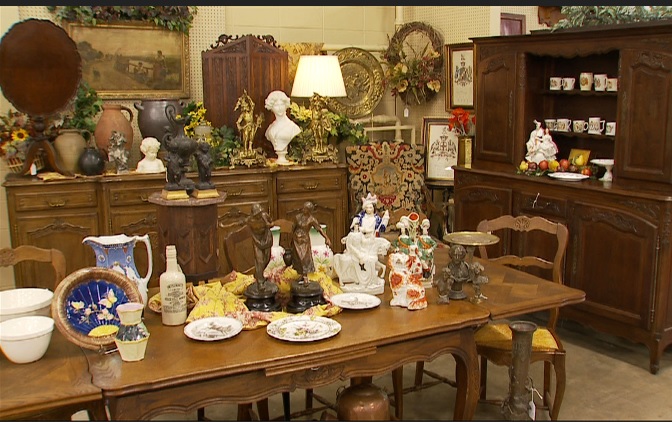
Clearing out and decluttering an estate
To the untrained eye it’s often hard to determine if a piece of art work is an original or not. You may find yourself asking: is Mums old crystal worth something or not. Organise to have furniture, jewellery, crockery and artworks valued by an expert. Or utilise our estate clearing services and we can help manage the process for you.
Start the cull/declutter process early
Depending on the size of the estate it can easily take a number of days/weeks to declutter and clear. So start the process early. If you need some tips on decluttering, this blog might help.
Find cost effective ways to dispose of goods when clearing out an estate
Rubbish removal is one of the biggest expenses in clearing out an estate. Properly managed though, this fee can be reduced down substantially.
We use a 4 step process to rubbish removal, with each step designed to reduce down the actual amount of goods that ultimately need to go into paid rubbish removal. So my big tip here is to think about the process of disposing of goods well in advance. Plus, try and make use of your free council rubbish pick up, if available.
Look at what items can be sold
You can use Gumtree or eBay to sell goods that you don’t want to keep or distribute to family members. However, just be realistic about the resale value. It does take time to take the photos, measure up items, write the description and list them along with more time manage all the enquires that you will receive.
Do a project plan
Clearing out and decluttering an estate is a big job. However, if you map out a project plan, listing key dates and tasks to be completed, along with a budget, it helps to manage the process. So set some time aside at the beginning of the clear out.
Get professional help
Decluttering an estate is an emotionally draining process, especially if family members are involved, because of the emotional attachment to items. Plus, people often don’t know where to start because they are just so overwhelmed by the sheer size of the job.
Plus, with family and work commitments, often the family doesn’t have a spare four weeks to spend decluttering and clearing an estate. Or there may not be any family at all to assist with this process. This is where a professional organiser who specialises in estate clearing can be a good strategy, both in terms of emotional support and practical experience.
If you would like to discuss how we can help with your estate clearance, please contact Natalie Morey on Ph: 9421 1070 or 0419 754 784.

























